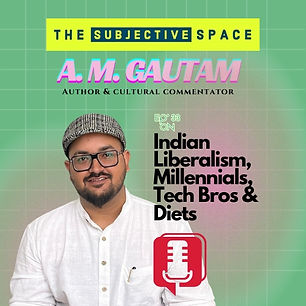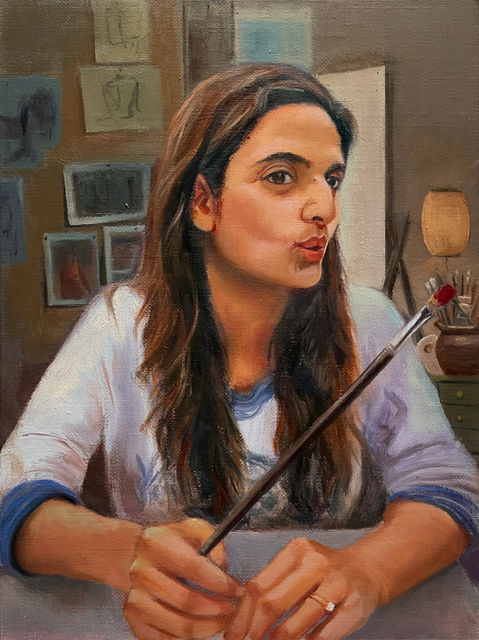வணக்கம். Welcome.

வணக்கம். Welcome.

a space for severely subjective (and slightly lost) souls
trying to make sense of dystopian realities.
P O D C A S T
IN CONVERSATION



I deeply admire writers – Lidia Yuknavitch, Rebecca Solnit – who hand you their experience in a way that feels unfiltered, like their heart is an egg cracked into your hand, their hope and their fury: of course, this is a craft in itself.
A lot of my writing, I think, is an attempt to engage with the aspects of being in the world that are hard for me to articulate, to engage with the questions I don’t have answers to. I keep gravitating to questions of home and belonging, with occasionally contradictory answers, or no answers at all: just a desire to keep questioning. Giving shape to the felt, the unknown.
"
Writer & Artist
ELODIE OLSON-COONS
Jessica
Widner
Edmund Husserl has a great image for this which is one hand holding the other – in this gesture, one is both touching and touched at the same time, both active and passive. And according to Husserl, touch is the only one of the five senses that has this dual potential. To me, this seemed like a great metaphor for the reading process itself which is, more often than not, described in terms of the visual and auditory senses rather than the more carnal senses. But reading is (as Wolfgang Iser tells us) a transformative act that goes both ways – we act on the text as the text acts on us and in this exchange the literary work is created.

WRITER & ACADEMIC
"


Sarah Shamash
Academic Artist Filmmaker
All peoples resisting settler colonialism and genocide, have had their worlds destroyed. Witnessing so much violence and horror was more than destabilizing; it paralyzed my artistic impetus and production. I really didn’t know what made sense anymore during a livestreamed genocide. In the early days of this livestreamed continuation of the Nakba, the only thing that made sense, was to connect with comrades, other media artists and film programmers, to ask what they were doing and to ask about how we could create solidarity spaces through film screenings.
"

I will say, finding the way back has required reflection and asking:
What do I keep focusing on, really?
Where am I spending my time, really?
Why am I moving in this direction?
Sometimes you wake up, unaware you’ve been riding passenger side in a car you’ve been meant to be driving this whole time. And no one’s in that seat, just air through the window. The accompanying adrenaline shot is vivifying.
Also: Do I care, really? [About [writing]]? Why?
Also: What else matters?
Also: tick tick tick
SABRINA USWAK
AUTHOR
"

scottMcNee
There’s Kazuo Ishiguro’s Nobel quote where he says that instead of ‘write what you know’, the thing he wants his fiction to ask is ‘This is the way it feels to me… Does it also feel this way to you?’ I think that’s true for all fiction anyway, but it’s perhaps even more obvious when you’re dealing with horror or apocalyptic and dystopian lit, things that are born out of anxiety or depression or fear. With something like ‘Jellyfish’, the lighter jokes are just essentially that most employment is absurd and essentially abstract – but it’s something we’re doing in the midst of absolute insanity. The poles are melting and the bees are dying but you better justify your job daily to a clade of middle managers. The 24hr access to news doesn’t help – that’s a lot of dead bodies you’re being told to ignore. Maybe that’s useful for writing, but I think I’d feel a lot better without all of it.
Writer
"


PRASHANTH VENKATARAMANA
CEO & Co-founder, Essmart

I don't think rural populations in India have the same access to either the quality of education, knowledge, technology, different aspects of life that urban citizens are taking for granted. I thought of this as a problem, not as an opportunity. I felt that I was empowered enough to try and not solve, but at least try and contribute to the solution in some way.
"
RAJITA TIPPAVAJHALA
ARTIST
anything handmade is about to become even more valuable
(Thanks to *cough cough* AI) and I love the tactile feel of the thick buttery paint on my brush as I take it to my canvas. It feels like delicate sensory play. You won’t find that richness anywhere in hue, chroma and texture like you would with oil painting.
"

JACK RYAN SMITH
Music Producer, A & R

There is no music without experimentation. A purist approach is death. To all things, not just music. The moment one takes such an approach, the art form is placed in formaldehyde and locked away in a cabinet, a curiosity, a holy relic that has some vague interest only in that it was once living and breathing, once of some importance.
"

SEMANTIC BANTER
Dr. Kwasu D. Tembo
Academic & Author

Sindhu
Rajasekaran
Curatrix
Sindhu Rajasekaran (she/her) is an author, filmmaker & academic. Her debut novel Kaleidoscopic Reflections was nominated for the Crossword Book Award, while her latest book of nonfiction is the critically acclaimed Forbidden Desire - How the British Stole India's Queer Pasts & Queer Futures. Sindhu's fiction, poetry & essays have been published internationally by literary magazines, leading platforms, and academic journals. She has produced an award-winning Indo-British feature film, Ramanujan, and has written for the screen. Worked for years as a communications consultant. Done a bunch of disparate things. Thought of starting a theory podcast for ages (and finally has through The Subjective Space).
Originally trained as an Electronics & Communications Engineer, Sindhu also has a PhD in Creative Writing from the University of Strathclyde, where she was a recipient of the Dean's Global Research Award. Her work explores queer South Asian pasts, creative epistemologies & queer decolonial storytelling.

We're on Substack.
You can engage with, chat about, challenge, or concur, with people/ideas/themes that appear on the site here. Construct a new(ish) discourse. So, come on now, join us in analysing various aspects of our dystopian realities.




.jpg)


.jpg)
.jpg)
.jpg)
.jpg)
.jpg)
.jpg)







.jpg)
.jpg)
.jpg)
.jpg)






.jpg)
.jpg)
.jpg)
.jpg)
.jpg)






.jpg)
.jpg)
.jpg)
.jpg)
%20(1).jpg)




















.jpg)


